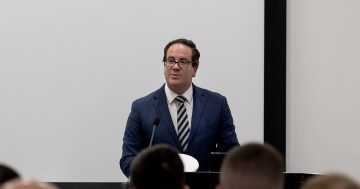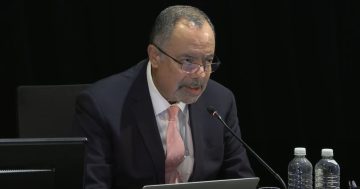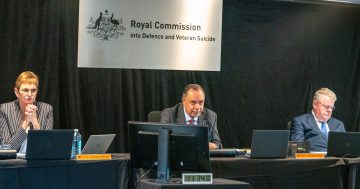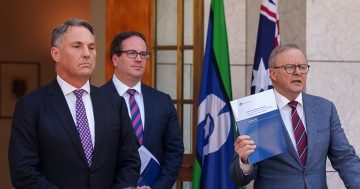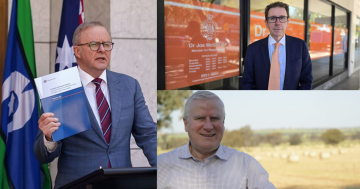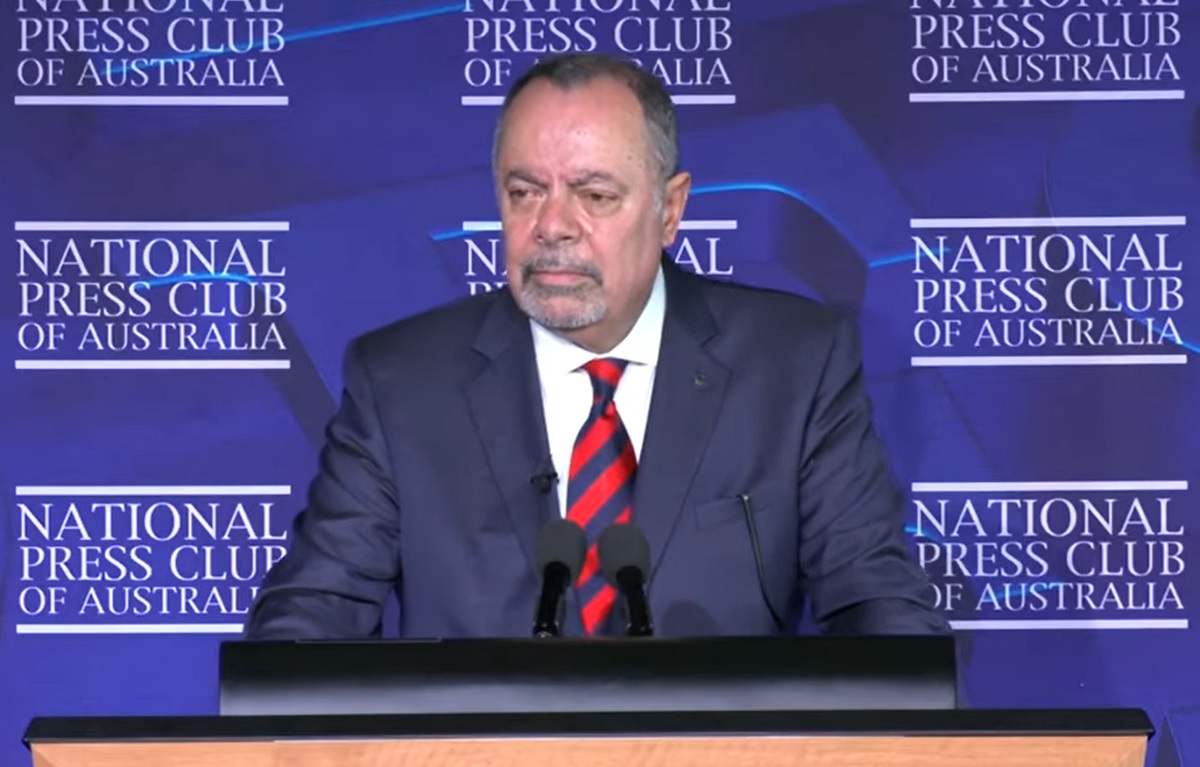
Defence and Veteran Suicide Royal Commissioner Nick Kaldas addresses the National Press Club on 13 September. Photo: Screenshot.
The head of the Royal Commission into Defence and Veteran Suicide has accused the government and Defence of using “every trick in the book” to block the release of information to the royal commission.
Former NSW Police Deputy Commissioner Nick Kaldas took the unusual step of addressing the National Press Club and doing a round of media interviews last week, even though there’s at least six months still to run before the royal commission is scheduled to deliver its findings.
And he didn’t hold back.
Mr Kaldas said his address was prompted by a lack of interest in or attention being given to the royal commission by the media and politicians and his frustration at ongoing efforts to hinder its investigations.
“We’ve made a conscious decision to speak out at the moment because we’re at a point where we feel that the issues we’ve uncovered have not been noticed, absorbed – people have not been that interested in them,” he told the Press Club audience, which included senior defence officials at the National Gallery’s Gandalf Hall last Wednesday (13 September).
“One of the things that must happen for things to improve is that there must be more interest, both from the public and, I have to say, the media on these issues, and when reporting begins then people begin to notice. And certainly, politicians take notice as well,” he said.
Mr Kaldas told ABC 7.30 later that evening that, “There have been many claims of public interest immunity, parliamentary privilege, cabinet in confidence – basically every trick in the book has been pulled out at some point to stop us gaining access to documents.
“I’m not sure if it’s Defence or government who I would blame, but I would say the legal representatives of those government departments and the government in general … didn’t get the memo,” he said.
The royal commission was established in July 2021 and delivered an interim report in August 2022. Described by Mr Kaldas at the Press Club as a “national crisis”, it has already been found that former full-time male Defence members have a 44 per cent higher suicide rate than the general population, while female veterans suffer from a rate double that of non-veterans.
Mr Kaldas told 7.30 that many Defence members with mental or physical health issues still didn’t feel confident about reporting their illnesses. “We have heard a lot of evidence from people who felt they were immediately ostracised and victimised because they complained. They broke the code of silence.
“We also heard a lot of evidence from people who, as soon as they put their hand up and say I’m not well, whether it’s physically or in terms of mental health, they call them ‘lingers’. I was surprised to find that the Defence Act, an act of parliament, has an offence in it of ‘malingering’.”
Mr Kaldas and fellow commissioners James Douglas QC and Dr Peggy Brown have requested additional time to deliver the final report. This request has been denied by Minister for Veterans’ Affairs and Defence Personnel Matt Keogh.
Speaking to ABC New Breakfast on 14 September, Mr Keogh said the royal commission had requested additional time because “they said they had a lot of more work that needed to happen”, but he said the government would instead grant the Royal Commission additional powers so that it can meet its original deadline.
“We’ve just got legislation going through the Parliament this week that will provide them with some additional powers to be able to undertake more work in parallel so that they can wrap up the royal commission next year,” the Minister said.
“We want to get on with the job, and we don’t want to see that drag on. We want to get their recommendations so we can be implementing them, and that’s a very strong message we’ve received from the veteran community as well,” he added.
The Royal Commissions Amendment (Private Sessions) Act 2023 legislation will see this and all future royal commissions granted more power to give witnesses an option to conduct face-to-face interviews in private sessions to minimise trauma from giving evidence or witness statements. Currently, these can only be conducted by a Commissioner, but the new law will amend this to allow suitably qualified senior staff members to conduct private interviews.
In August, the government said it would develop a new Defence and Veteran Mental Health and Wellbeing Strategy, which it says will better support and improve the mental health and wellbeing of Defence personnel, veterans and families.
But Mr Kaldas said it shouldn’t have taken two years into a royal commission for that to happen.
“I don’t think they should have needed a royal commission to establish something like that,” he told ABC 7.30.
“The reality is, with suicide statistics and monitoring that space that the government generally has not been watching, we struggled to find accurate, definitive statistics on many issues because they simply weren’t watching.”
If this story has caused any discomfort or distress, free and confidential counselling and support are available to all current and former serving ADF personnel and their families through the following services:
Open Arms – Veterans & Families Counselling provides 24/7 free, confidential crisis support for current and ex-serving ADF personnel and their families on 1800 011 046 or www.openarms.gov.au.
Safe Zone Support provides anonymous counselling on 1800 142 072.
Defence All-Hours Support Line provides support for ADF personnel on 1800 628 036 or www.defence.gov.au/health/healthportal.
Defence Member and Family Helpline provides support for Defence families on 1800 624 608.
Original Article published by Andrew McLaughlin on Riotact.


